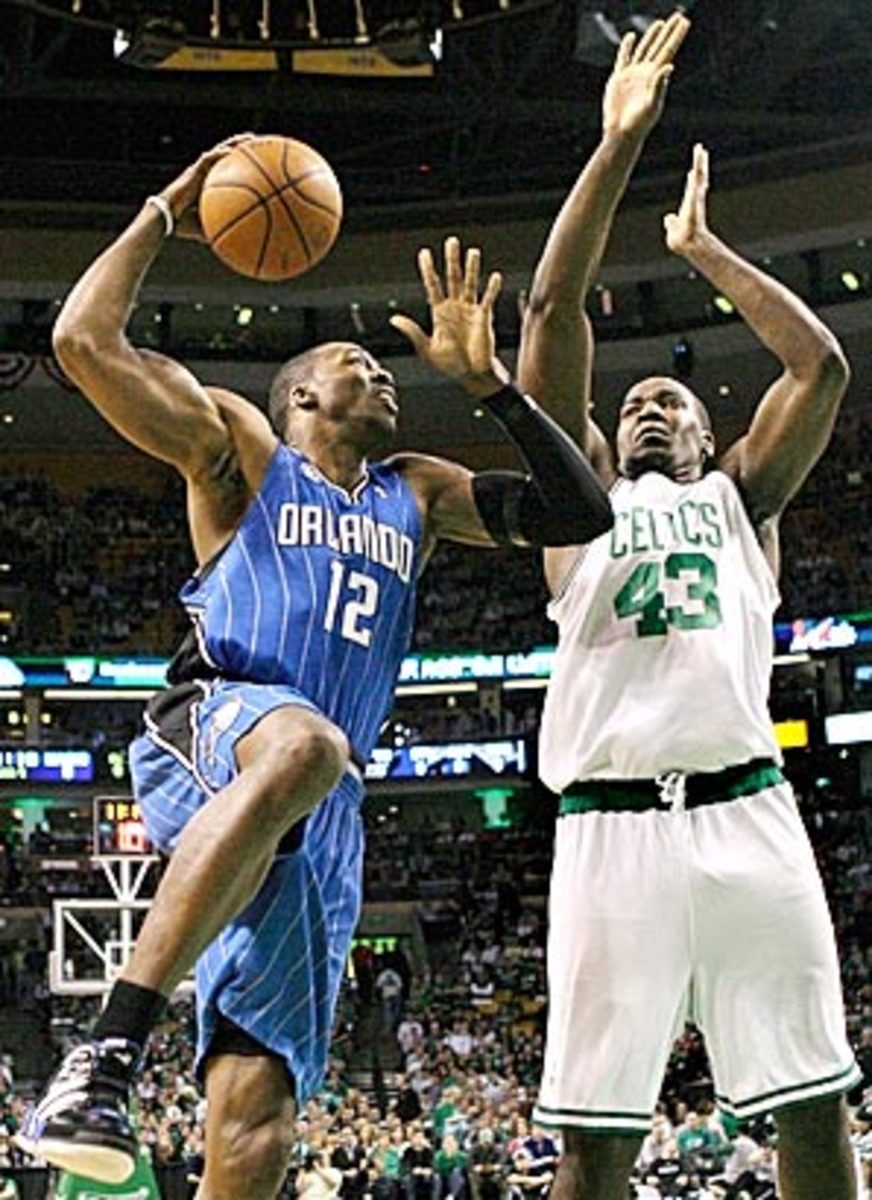
Howard, Van Gundy both deserve blame for Magic's Game 5 collapse
BOSTON -- After the Celtics had completed a stunning comeback Tuesday to take a 3-2 series lead against the Magic in the Eastern Conference semifinals, Orlando coach Stan Van Gundy called out his players for squandering a 14-point lead in the fourth quarter.
"We just quit playing," Van Gundy said. "We quit playing the game that got us here. We looked like we were trying to run the clock out, walking the ball up the floor, playing half court. We haven't had success playing that way but that's how we tried to play it. I kept telling them, 'We want to push the ball.' But we didn't. That was not the way to try to finish the game."
In response, franchise center Dwight Howard second-guessed Van Gundy and his staff. Howard questioned Van Gundy's game management and substitution patterns -- "The coaches have to recognize what's working on the floor and stick to it," he said -- and his own lack of involvement in the offense.
"It's tough to get yourself going and get a lot of shots without a lot of touches," Howard said. "We have to do a better job with that."
The criticisms from both player and coach are stinging (the two met Wednesday in attempt to clear the air), but each has merit. Van Gundy is right: After running the Celtics ragged for three quarters and utilizing fluid ball movement to get open looks, the Magic stalled. For the second half of the fourth quarter, Orlando ignored its coach's pleas and became an isolation team. As a result, Howard was frozen out, failing to take a shot in the final six minutes after hitting both of his attempts in the first half of the period.
Howard is right, too, as 10 shots overall for the No. 4 finisher in MVP voting isn't maximizing his talent (though it's not far off his season average of 12.4).
"They have so many shooters out there, I can't believe they can't devise a play that would allow Dwight to go one-on-one," a Western Conference scout said. "You get him the ball and that sets the tone for playing inside-out."
Said Howard: "You got a dominant player, let him be dominant."
But Howard hasn't been dominant. Not in this series, anyway. And not generally against physical teams like Boston that know the key to defending Howard is playing as much single coverage as possible, pushing him outside and forcing him to make decisions after starting his move.
"Boston is defending him very well," an East assistant coach said. "Kendrick Perkins is underrated. To successfully defend Howard, you need a guy with good footwork, length and muscle; Perkins is above average in all three of those categories. And you don't double-team Howard when he catches it; you double when he makes a basketball move. When you come late, after he puts the ball on the deck, he usually makes a bad decision."
That's if Howard makes a basketball move. One thing that has become clear this series is that Howard's offensive repertoire isn't as diverse as the Magic would like it to be. From 5 feet in, Howard is the most unstoppable force in the league. But the questions come when he is outside of dunk and layup distance.
"He's phenomenal on tip dunks, rebounds and lobs, but you can't run a lot of half-court stuff for him," an East scout said. "All he really has is that left-shoulder half-hook."
But even those critical of Howard's offense believe the Magic should give him more opportunities.
"If he is your 'superstar,' then you rise and fall with him," the East scout said. "Run cross screens and let him catch it as deep as he can. If you're going to lose late in the game, make sure you lose riding his coattails."





